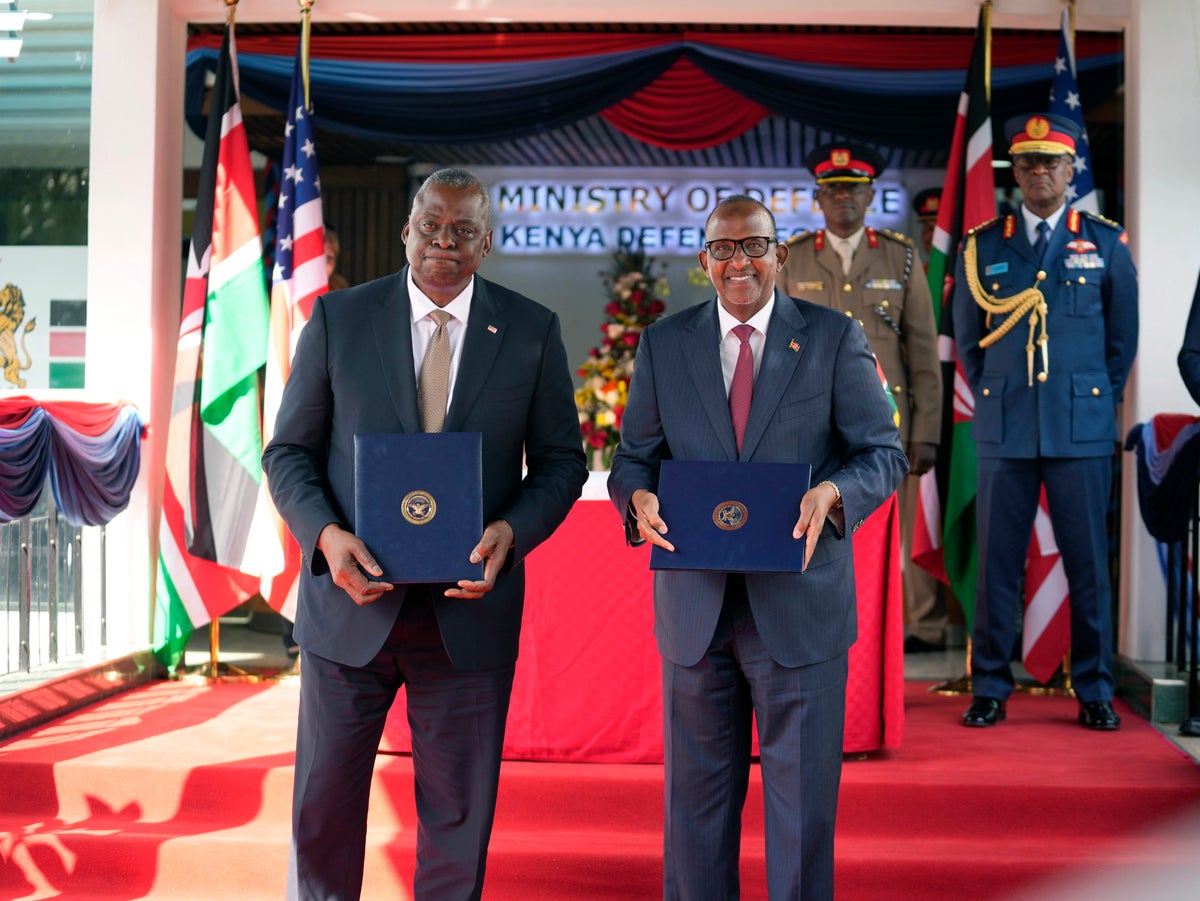
The U.S. and Kenya signed a defense agreement Monday that will see the East African nation get resources and support for security deployments as it is poised to lead a multi-national peacekeeping mission to Haiti to combat gang violence.
U.S. Defense Secretary Lloyd Austin and Kenya’s Defense Minister Aden Duale signed the accord at a meeting in the Kenyan capital, Nairobi. The agreement guides the countries' defense relations for the next five years as the war in East Africa against the al-Qaeda linked al-Shabab extremist group intensifies.
Austin thanked Kenya for volunteering to take the leadership of the Haiti multi-national force and reiterated that the U.S government would work with Congress to secure the $100 million in funding that it pledged on the sidelines of the U.N General Assembly.
Austin said the rest of the world ought to follow Kenya’s commitment to global security and “step up and provide more personnel, equipment, support, training and funding.”
Kenya has pledged to send 1,000 security officers to Haiti to combat gang violence in a mission that is pending the U.N Security Council’s formal approval but has received support from the U.N. and U.S.
Duale said his country is ready to deploy to Haiti and cited Kenya’s “very long history of global peacekeeping” in Kosovo, neighboring Somalia and Congo.
Human rights activists, meanwhile, have expressed concerns over the deployment, citing a history of human rights abuses during security operations in the country.
Some security analysts have expressed concerns that there will be a language barrier between the deployment from Kenya, an English- and Swahili-speaking country, and the people of Haiti, where the official languages are French and Creole.
On the regional fight against al-Shabab, Austin said he had met with Somalia’s president and that both agreed that the country had made “significant progress in the last year against al-Shabab." But Austin also said that “progress is not always a straight line so we may see things improve significantly on one day and maybe we’ll see challenges on the next day.”
Somalia last week asked the U.N. to pause for three months the withdrawal of 3,000 troops in the second phase of drawdown to allow the country’s forces to regroup. Somalia is expected to take up its full security responsibilities by end of 2024.







